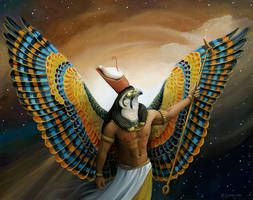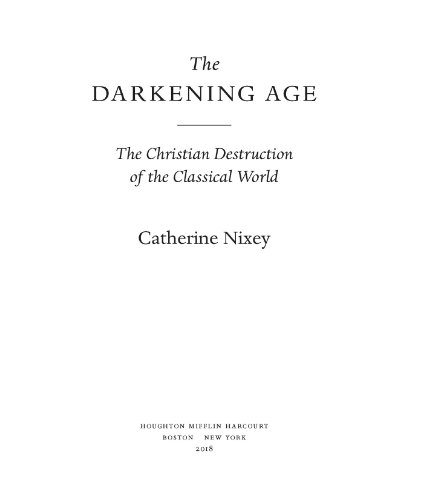Well, lets see how
Born of a virgin? No, Hercules was the product of an extra-marital affair between Zeus and Alcmene.
In other words, they did the hunka-chunka.
A star in the sky proclaiming his birth? No, Hercules had no such sign. As a newborn, Hercules did bite into Hera’s breast, which squirted milk into the sky
Performing miracles? Only those involving strength, and since all gods (and some demigods) were thought to have
Incarnate deity? No. Unlike Jesus, who is God the Son incarnate in human flesh (John 1:1), Hercules was a demigod, half divine and half mortal. Indeed, he is far more similar to the Nephilim angel/human hybrids of
Both demigods? As stated above, Jesus is fully god and fully man, while Hercules is half and half.
When Jesus is called “Son of God”, this doesn’t mean that he is a demigod (like the Greeks thought when using the phrase), or an angel (In Hebrew, Bene Elohim (son of god) was a term that referred to angels) or something or
It means that he is God the Son, the term “son” metaphorical of
Both crucified? No, Hercules killed himself by building a pyre, throwing himself on it and having someone light it up. The only similarities there are wood and death, and not enough to make a good legit comparison, especially when you
Indeed, while Jesus comes from a monotheistic Hebrew background, Hercules comes from a polytheistic Greek background.
So what similarities could they have?
1. An attempt was made on their lives shortly after they were born?
True, both Jesus and
Not…much of a similarity.
Which brings us to Hercules’ supposed resurrection.
According to the Myth, after Hercules died, he was taken to Olympus and made a full fledged god
However, this idea fails when you dig
For you see, Ovid, in his "Metamorphoses", is clear that Hercules’ body was consumed entirely, no trace of his mortal frame remained. This could be reconciled with Diodorus Siculus's account, which states that there were no bones left after the fire.
And plus, we also have to remember that even if this was a physical resurrection, there would still be one BIG difference.
In Herakles/Hercules’ tale, the gods resurrect him.
In the Bible, Jesus resurrects himself.
Jesus makes for great salvation.
Sources:
Ovid’s “Metamorphoses”, 9.159-280
Homer “The Odyssey”, Book 11
Hyginus “Fabulae”, 102
Apollodorus “Bibliotheca”, Book 2, 157-160
penelope.uchicago.edu/Thayer/E/Roman…


















